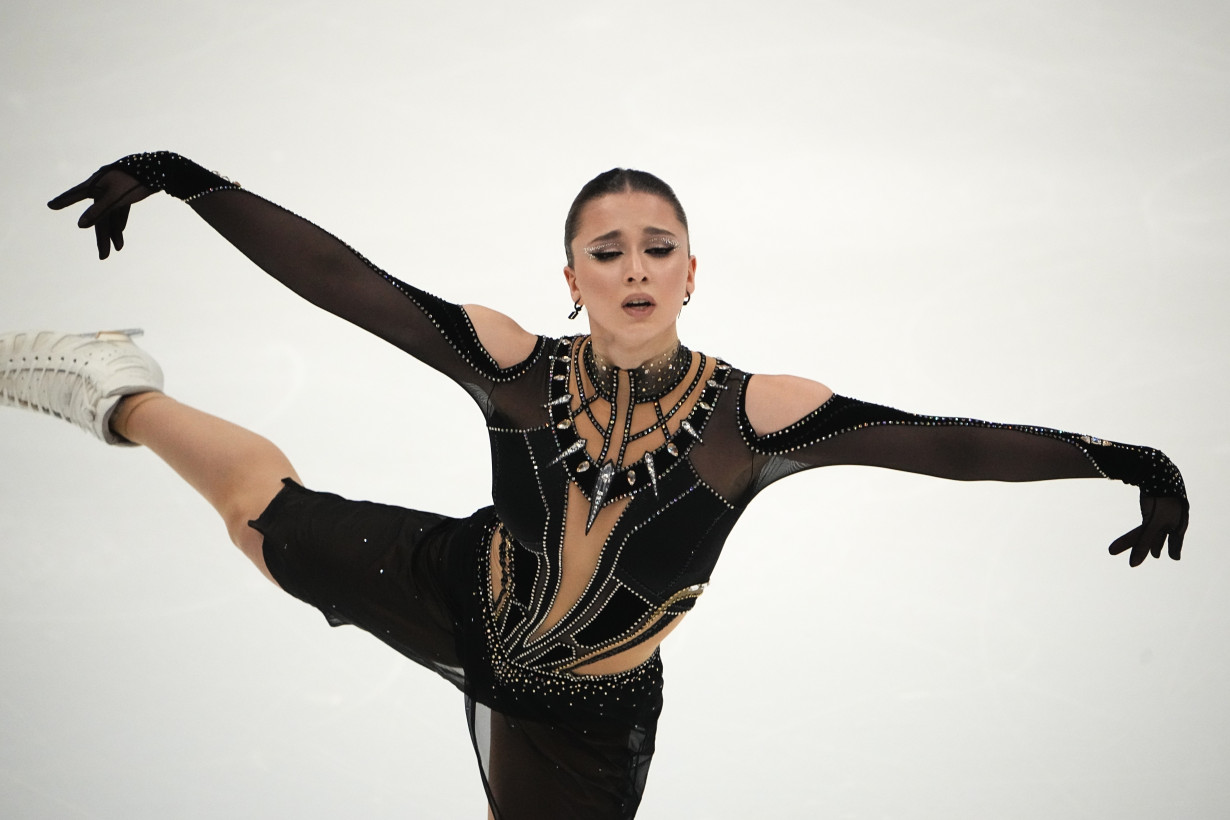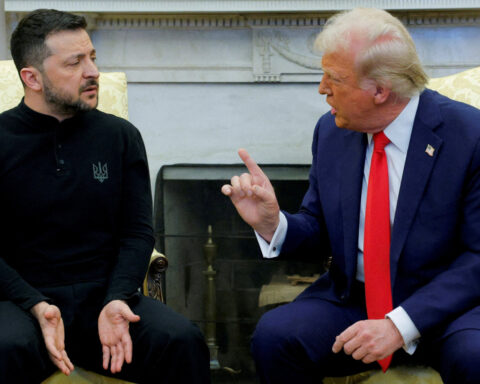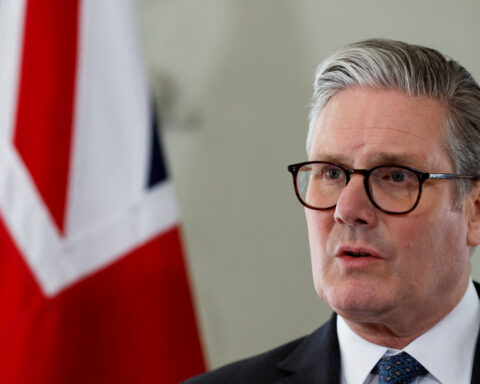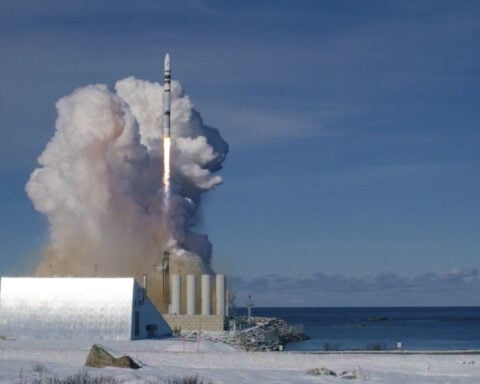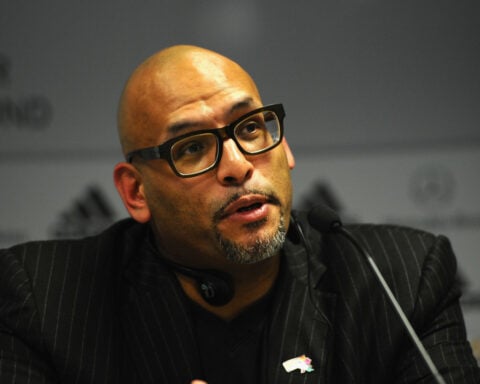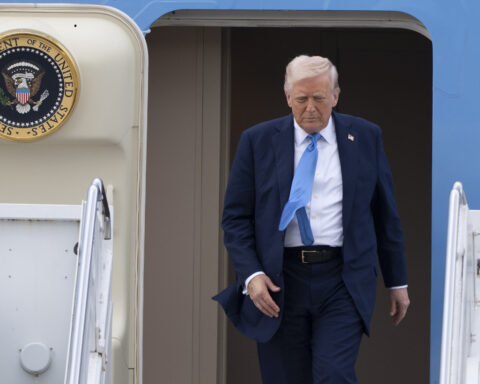Attorneys for Russian figure skater Kamila Valieva are taking her doping case back to court, arguing the World Anti-Doping Agency withheld and altered evidence that could have proven her contamination claim during the hearing that resulted in her four-year suspension.
The experiment conducted by scientist Martial Saugy at the request of Russia’s anti-doping agency through its channels at WADA was kept secret until The Associated Press revealed details of it last September, along with WADA’s concerns about it.
“We have a big issue,” WADA’s director general wrote to its general counsel after learning of the experiment. “How come we have Saugy doing an opinion for Valieva, super-favorable to her?”
Details of Saugy’s experiment about how Valieva could have been contaminated by drinking a strawberry smoothie her grandfather made never showed up during a five-day-long hearing at the Court of Arbitration for Sport in 2023 at which WADA and others had been asked to produce all material related to the skater's positive test.
After reading the AP story about the experiment, Valieva’s attorneys filed an appeal with the Swiss Supreme Court — considered the last, and usually futile, attempt to appeal CAS decisions — asking for details of the experiment to be released.
WADA eventually provided it, and the AP obtained a copy of Saugy’s 11-page memo. It details the painstaking lengths he took to see if Valieva’s contamination claim was plausible.
Skater's attorneys argue WADA committed ‘procedural fraud’
Valieva, now 18, was the headliner on the team that finished first in the Olympic team figure skating event at the 2022 Beijing Games but ended up with the bronze medal after her result was scrubbed because of the doping positive. Her suspension ends late in 2025 and reports are that she will return to competition in time for next year's Milan-Cortina Olympics.
In a filing this week to the court, Valieva’s attorneys write: “The production of Professor Saugy’s report by (WADA) confirms the procedural fraud that motivated the request for review.”
They claim WADA did not disclose the experiment to CAS, which would have added a theory for Valieva’s positive test for scant traces of the drug and also subjected Saugy to cross-examination at the hearing, and when they finally did hand it over, it had been altered to look less favorable for Valieva.
WADA spokesman James Fitzgerald said “any allegation of wrongdoing on WADA’s part is completely rejected” and that the agency would “vigorously defend its position in this matter.”
He said the report "was not WADA’s document to share” and wouldn’t have been covered by discovery obligations.
“The report was not helpful to Ms. Valieva’s case and, anyway, would have had no impact on the result as the Court of Arbitration for Sport Panel ultimately rejected the athlete’s strawberry dessert explanation, not based on the scientific plausibility but rather because it was not supported by sufficient factual evidence,” Fitzgerald said.
In contamination cases such as the one that ruined the then 15-year-old’s 2022 Olympics and painted her as the helpless pawn of powerful Russian coaches and sports leaders, the athlete has the burden of proving how the drug got into their system.
CAS arbitrators labeled as “inherently implausible” the idea that Valieva would have taken the smoothie her grandpa made on a long train ride and eaten it over a period of days.
Saugy said he was prevented from speaking about the report per terms of a confidentiality agreement he had signed.
Crushed pills on dirty cutting board showed ‘smoothie theory’ was plausible
In the experiment, the scientist tried to replicate conditions under which the grandfather said he made the smoothie by crushing pills on a wooden cutting board that had not been cleaned.
Saugy made estimates on how much residue from the pills, combined with its mingling with the fruit on the same cutting board, could have ended up in the smoothie Valieva claimed she drank on a train from Moscow to St. Petersburg, where she went to compete in December 2021.
“Depending on the quantity and the time of ingestion of this contaminated food by the athlete, the scenario cannot be excluded,” Saugy wrote of the theory that Valieva could have accidentally ingested the drug.
Saugy also included that finding in his conclusion at the end of the report. But further down in that four-paragraph section, he wrote that “the voluntary intake of a dose of Trimetazidine 4 to 5 days before the antidoping test stays the most plausible scenario.”
Did the scientist make late additions, deletions to the report?
In arguing the report was altered, Valieva's attorneys say Saugy’s experiment — which included breakdowns of how the drug metabolizes in a person's system — did not support the theory that the scant amount of the drug in Valieva's system at the time of her positive test could have resulted from intentional use of the drug.
“This additional conclusion, which is unrelated to the purpose of the expert appraisal and the questions posed, contradicts the rest of the report,” the lawyers said.
They also point out that the original request, sent by a WADA deputy director at RUSADA’s request, contains eight questions, while the report only includes Saugy's answers to the first seven. The excluded question: “How did the TMZ enter the athlete's body?”
“It seems clear that Professor Saugy initially answered this question and subsequently deleted his comments precisely because they were 'super favorable' to Kamila Valieva,” the attorneys argue, in repeating the phrasing used by WADA's director general when he expressed alarm over the experiment.
Drug was same one at issue in case involving Chinese swimmers
The drug Valieva tested positive for, Trimetazidine, is the same one that showed up in the systems of 23 Chinese swimmers who were not penalized after WADA accepted that country’s contamination explanation for their positive tests.
That case brought harsh scrutiny on WADA — the U.S. government stopped paying its dues to the drug-fighting organization — and the Valieva case illustrates a disconnect between how WADA handled scenarios involving different countries whose athletes tested positive for the same drug and made similar contamination claims.
Valieva’s case was the latest chapter in a saga that, at the time, had dragged on for eight years. Russian sports leaders had been found to be cheating the system at the highest levels, and also lying to WADA when it came asking for evidence of the malfeasance.
Russia’s anti-doping agency was non-compliant at the time the Valieva case played out, which forced it to run the request for Saugy’s experiment through WADA.
WADA, therefore, received the results of the test, and that alarmed director general Olivier Niggli, whose texts to Gunther Younger, the head of the agency’s new intelligence and investigations unit, were seen by the AP.
“If it is a RUSADA opinion, we should absolutely not be involved in anyway,” Niggli wrote. “This is a big issue on our side to get involved in such an opinion that will be used in court. We have to stop that urgently.”
___
AP Olympics: https://apnews.com/hub/winter-olympics

 Trump has begun another trade war. Here's a timeline of how we got here
Trump has begun another trade war. Here's a timeline of how we got here
 Canada's leader laments lost friendship with US in town that sheltered stranded Americans after 9/11
Canada's leader laments lost friendship with US in town that sheltered stranded Americans after 9/11
 Chinese EV giant BYD's fourth-quarter profit leaps 73%
Chinese EV giant BYD's fourth-quarter profit leaps 73%
 You're an American in another land? Prepare to talk about the why and how of Trump 2.0
You're an American in another land? Prepare to talk about the why and how of Trump 2.0
 Chalk talk: Star power, top teams and No. 5 seeds headline the women's March Madness Sweet 16
Chalk talk: Star power, top teams and No. 5 seeds headline the women's March Madness Sweet 16
 Purdue returns to Sweet 16 with 76-62 win over McNeese in March Madness
Purdue returns to Sweet 16 with 76-62 win over McNeese in March Madness
